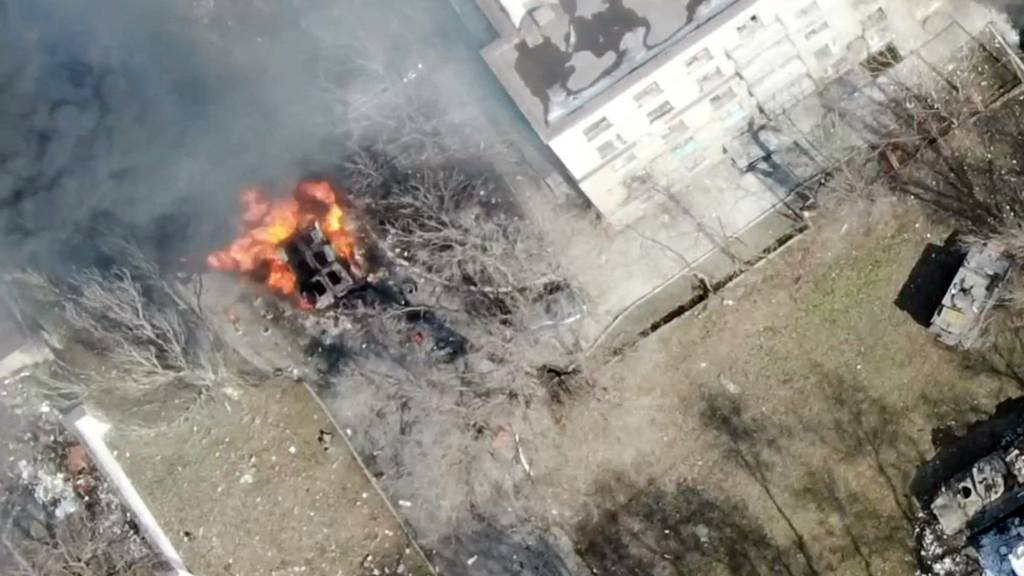
Live
As it happened: US warns China against Russia support
viewing this page
Updates from BBC correspondents in Ukraine: Jeremy Bowen, Orla Guerin, Lyse Doucet and James Waterhouse in Kyiv, Sarah Rainsford in Dnipro, Andrew Harding in Odesa and Yalda Hakim and Hugo Bachega in Lviv
Related Video and Audio
RTL
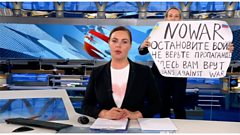
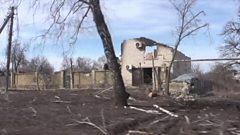
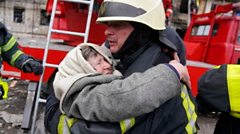
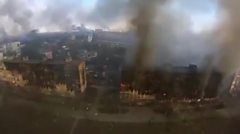
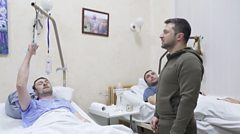
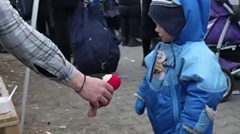
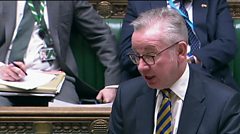
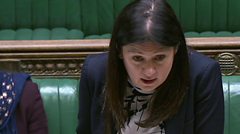
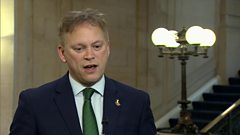
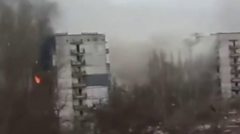
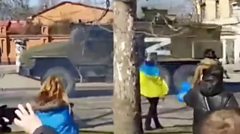

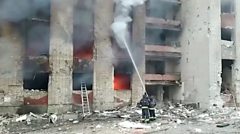
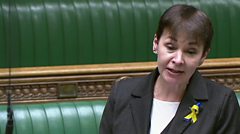
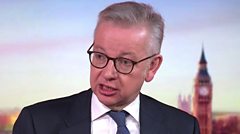
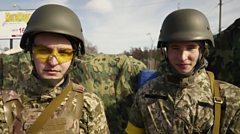
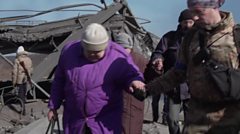
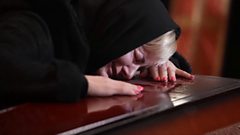
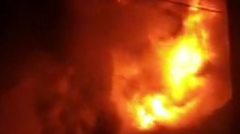
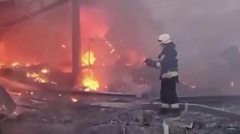
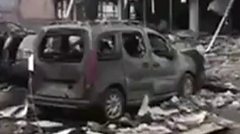
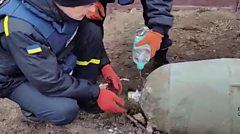
Live Reporting
Edited by Yvette Tan
All times stated are UK
Get involved
More than 1.6 million people have fled Ukraine to Poland
Adam Easton
Warsaw Correspondent
More than 1.6 million people have fled Ukraine to Poland since the war began, the Polish Border Guard agency said on Saturday.
Not all of those refugees are thought to be currently in Poland.
Maciek Duszczyk, the vice-rector for research at Warsaw University estimates that about one million refugees remain in Poland, and the rest have left for other countries.
The number of people who had crossed the frontier today by 14:00 GMT on Saturday was 46,400 - up 4% from the same period on Friday, the Border Guard agency wrote on Twitter.
Life in Kyiv for those who choose to stay
Kateryna Khinkulova
BBC World Service, London
It's been more than two weeks since the Russian invasion began and conversations with my friends back home in Ukraine have become more precious than ever.
Several of them are resolutely staying in Kyiv, some have moved to Lviv, the western city now bursting at the seams with evacuees, and many are strewn around the countryside where it is deemed to be safer than in cities and towns.
My very best friend, Oksana, is in the capital and on day 17 of the invasion many things have changed.
In her building, only 20 out of 60 flats remain occupied and the concierge, who used to watch the lobby and open the front door, is now gone.
The residents have set up a rota to replace her, each day split into four-hour shifts.
Oksana and I chat while she is “on duty”.
I overhear one neighbour walking in and asking Oksana if she’d seen an elderly lady from the ninth floor recently, they are worried if she has enough food and will now go and check.
A few minutes later another neighbour appears, offering Oksana a chicken.
“I was in the shop,” she says, “there was chicken available, so I bought a few, do you want one?” Oksana politely refuses but suggests the neighbour offers it on the building’s WhatsApp group.
I ask Oksana about food.
There isn't a shortage per se, she says, but things have become random. Like you can sometimes buy a pineapple and crayfish but not always bread or milk.
A third neighbour stops by and talks about evacuation.
She had been hoping to get on a coach going abroad but it was cancelled.
She is philosophical about whether this was a good or a bad thing and wonders if it's better to stay home after all.
It seems that the Kyivites who remained in the city this long are now more determined than ever not to abandon it.
About 2,000 people evacuated from Kyiv on Saturday - emergency services
About 2,000 people were evacuated in the Kyiv region on Saturday, the State Emergency Service has said.
An evacuation convoy of 40 buses arrived in the village of Bilohorodka on Saturday afternoon, according to a statement from the service.
Rescuers have been providing evacuees with assistance, including medical and psychological, the statement added.
Casualties, clashes and evacuation attempts - developments on day 17
The sun has now set in in Kyiv and as the evening there begins here's a round-up of the latest developments:
Diplomatic talks: A call between the French, German and Russian leaders did not produce any concrete results. President Emmanuel Macron and Chancellor Olaf Schulz asked for a ceasefire but Vladimir Putin did not show any willingness to end the war in Ukraine, Mr Macron's office says.
Casualty figures: Ukrainian President Volodymyr Zelensky told reporters that around 1,300 Ukrainian troops have been killed in the first 17 days of the Russian invasion. Western sources estimated on Friday that around 6,000 Russian troops have also been killed in that period.
Evacuation attempts: Humanitarian corridors had been set up from Mariupol, Sumy and towns and villages outside the capital Kyiv. But continued Russian shelling in some places, including near Kyiv, have made things more difficult. Mariupol Deputy Mayor Serhiy Orlov told the BBC a convoy had left Zaporizhzhya for the city carrying aid and including buses for the evacuations, but it was not clear whether it would get through.
Fighting near Kyiv: While things have been calm in the centre of the capital, clashes have continued on the outskirts. British intelligence says the bulk of Russian forces are within 25km of the centre. Ukrainian officials fear the Russians may be preparing to launch a large-scale assault.
Fury at mayor's abduction: Hundreds of residents have taken to the streets of the south-eastern city of Melitopol to protest against the abduction of its mayor by Russian forces. Ukraine's President Zelensky demanded his immediate release and accused the Russians of "moving to a new stage of terror".
Mariupol hopes for evacuations
Mariupol Deputy Mayor Serhiy Orlov has told the BBC that a convoy is on its way to the city bringing aid and buses to evacuate civilians.
But he said this was the seventh attempt to bring relief to the city.
"On the previous six it didn't work," he said. "The convoys were not let through - they were bombed, the road was mined, there was shelling in the town. Let's see whether this one gets here or not."
Mr Orlov was unable to confirm whether a mosque in the city had been hit by shelling, though he said it "could well be in the zone of bombardment".
Ukraine's government said earlier on Saturday that the mosque had been shelled, but Turkish TV quoted the president of the local mosque association as saying that while the area had been under fire the mosque itself was not hit.
Mr Orlov said that about 2,000 people had been killed in Mariupol, but it would not be possible currently to establish the exact number of dead.
Poland approves legislation to allow Ukrainians to live and work in country
Adam Easton
Warsaw Correspondent
Earlier we heard from our correspondent Dan Johnson about how Kraków, a city in the south of Poland, is seeing large numbers of refugees fleeing the war in Ukraine.
Now Poland has announced that its parliament has approved emergency legislation that allows Ukrainians fleeing the war the right to live and work in the country for 18 months.
The refugees will receive a social security number and have the right to access free healthcare and education, as well as social benefits.
Once registered, they will be allowed to extend their legal status for up to three years.
More than 1.5m people have fled Ukraine for Poland since the start of the war, mostly women and children, though not all of them are thought to have stayed in the country.
Maciek Duszczyk, the vice-rector for research at Warsaw University, estimates about one million refugees remain in Poland, and the rest have already left for other countries.
The bill also entitles Poles who host Ukrainian refugees in their homes Zloty 40 ($9.12/8.36 euros) a day per person in assistance to help pay for the additional costs for a period of up to two months.
The bill will now go to President Andrzej Duda to be signed into law.
Volnovakha 'no longer exists', local governor says
The south-eastern city of Volnovakha has been completely destroyed since the Russian invasion, says governor of the Donetsk region Pavlo Kyrylenko.
He said since the invasion began most of Volnovakha's population has fled, and much of its infrastructure has been destroyed, meaning the city effectively no longer exists.
"In general, Volnovakha with its infrastructure as such no longer exists," he told Ukrainian TV channel Direct.
But he said fighting is still going on there to prevent a Russian encirclement of the strategically important territory.
Volnovakha has been under a heavy barrage of shelling, rockets and air strikes, destroying almost every building in the town.
Ukrainian forces holding back Russian troops in Mykolaiv
Andrew Harding
BBC News, Mykolaiv
There were loud explosions through the night and early morning in the strategic city of Mykolaiv, where Ukrainian forces continue to hold back an advance along the Black Sea coast by Russian troops.Much of the fire appeared to be outgoing, as Ukrainian artillery sought to keep the Russians pinned down on the eastern side of the city. But a number of civilian neighbourhoods were also reportedly hit by Russian shelling.
“They used cluster bombs and Grad (multiple rocket systems) to attack sites in the north east of the city,” said Anastasia Aleksieieva, who is helping to organise civilian volunteer groups in Mykolaiv. She said eight civilians had been injured.The skies over the port city were clear on Saturday, following heavy snowfall on Friday. Soldiers and volunteers could be seen putting sandbags around checkpoints on the outskirts.Near the governor’s offices in the city centre, two volunteer soldiers showed off a large black car with a “Z” painted on the side and a machine gun tripod mounted on the roof, which they said had been captured from retreating Russian forces to the south east of Mykolaiv.
In Russia, "Z" is fast becoming seen as a staunchly pro-war symbol of President Vladimir Putin's invasion of Ukraine.
Aim of sanctions is to corner Putin - French presidency
We've been giving details of today's call between French President Emmanuel Macron, German Chancellor Olaf Scholz and their Russian counterpart Vladimir Putin.
The French presidency has now released more information about what was said during the nearly 90-minute conversation.
The French statement goes on to talk about what could happen next:
Krakow station becomes the heart of the refugee effort
Dan Johnson
BBC News
Some 1.6 million Ukrainians have crossed into Poland since the invasion. It feels like they’ve all passed through Krakow station. Every train from the east, every bus from the border delivers more desperate, weary Ukrainian women and children.
We’ve been reporting from here for a few days now and although the faces change hourly, the scene keeps repeating as more people arrive just as some move on.
The welcome from the Polish people, from volunteers and the local council is remarkable. There’s plenty of food as well as clothes and items like toothpaste and sanitary products.
Some may spend a night here on the station floor before moving into accommodation. Nobody is stuck here but it’s getting harder to find enough beds or transport to places with space.
Yesterday the fire service joined the logistical effort to get people into buses to other Polish cities or other countries. The authorities have put up posters advertising smaller cities where beds and jobs are available and the cost of living is lower.
Also today we came across many people from other European countries.
Tomek & Tine are from Germany they drove from cologne this morning with three minivans, ready to take 18 people - the are five families back in Cologne ready to host refugees.
Rico is from Lüdenscheid near Dortmund and drove a bus all the way here to pick up as many people as possible. After a few hours of convincing and reassuring, the bus starts filling up.
Robert from the Netherlands has more spare seats and the promise of safe accommodation with families who’ve been vetted. But he’s aware that Ukrainians may be reluctant to travel so far from their own country.
After such a tough journey to safety across the border many are bewildered, exhausted and find themselves having to make huge decisions which could determine their future lives, trusting complete strangers and possible heading to places they’ve barely heard of.
It is happening. There’s progress and positive outcomes. But the system - as much as there is one - is barely coping and everyone here is aware that this could be just the start.
BreakingRussia working with UN nuclear watchdog to ensure Chernobyl safety
The Russian nuclear regulator, Rosatom, says that activities to ensure the safe operation of the Chernobyl nuclear power plant are being carried out in coordination with the UN nuclear watchdog, the International Atomic Energy Agency.
The company says that a team of Russian specialists are on-site at the station to restore power to the plant.
Rosatom officials also said that Ukrainian personnel remain in control of the Chernobyl and Zaporizhzhia plants.
It follows claims made by Petro Kotin, the head of Ukraine’s state-run nuclear company Energoatom on Friday that Russian engineers have been installed to manage the Zaporizhzhia station.
BreakingPutin not ready to end war - French official
Macron asked Putin to end the siege during a call between Putin, Macron and the German Chancellor Olaf Schulz. But an official in the French presidency, quoted by Reuters, says that Putin did not appear ready to end the war.
The two western European leaders also repeated the call for a ceasefire as a condition for full negotiations.
The French presidency also accused Putin of "lies" after he said that Ukrainian soldiers were responsible for human rights abuses, AFP reports.
BreakingMacron tells Putin to lift Mariupol siege
French President Emmanuel Macron has urged President Vladimir Putin to lift the siege on the southern Ukrainian city of Mariupol, where people have been living without water or power for days.
UK 'must pick a side' on Russian 'blood money' oil
Oleg Ustenko, economic advisor to Ukraine's President Volodymyr Zelensky, says the UK government's continuing acceptance of Russian oil amounts to British motorists funding the attack on Ukraine.
He tells the BBC: "I am shocked and disappointed beyond words Britain has allowed this to happen.
"This is blood oil diesel. It will be sold for money and that money was used by Putin to buy weapons and ammunition that are killing Ukranians. It is literally true that your purchase of these kinds of oil has killed Ukranian children."
His comments came as an oil tanker from Russia, which was not breaking sanctions and which was registered in the Marshall Islands in a common international shipping practice, arrived on the Thames today.
Earlier this week, Business Secretary Kwasi Kwarteng said the UK would phase out imports of Russian oil - which make up around 8% of the country's supplies - by the end of the year.
But Ustenko is urging the British public to put pressure on businesses who are still buying Russian energy now.
"This is a time when you have to pick a side," he says.
Russia warns arms convoys 'could be targets'
We've also been hearing today from Russian Deputy Foreign Minister Sergei Ryabkov.
He has warned Western arms convoys to Ukraine could be “legitimate targets” for the Russian Armed Forces.
Speaking on state TV, Mr Ryabkov said: “We have warned the US that pumping weapons into Ukraine, which they have orchestrated, from a number of countries, is not just a dangerous move - it is a move that turns these convoys into legitimate targets.
"We have warned of the consequences that can result from this reckless transfer to Ukraine of such types of weapons as portable air-defence systems, anti-tank missile systems and so on.”
The minister then claimed that the US did not take Russia’s warnings seriously.
Russia should be ashamed of mayor's abduction - Zelensky
Volodymyr Zelensky says Russia should be ashamed of its abduction of the mayor of Melitopol, Ivan Fedorov.
Russian troops abducted Federov from a crisis centre in the occupied south-eastern city on Friday afternoon. His kidnapping was captured on CCTV footage which has been widely shared on social media.
"The detention of the mayor of Melitopol is a crime against democracy," Zelensky says.
"They've killed one mayor and now they capture another one. Meaning that all the mayors, no matter which cities the Russian forces enter, if they do not confirm their collaboration, they are being killed" Zelensky adds. "This is simple terrorism".
"A human being captured. They are not ashamed of that video. They take him and bring him to a cellar and torture him and then kill him," Zelensky alleged.
He says that German and French leaders should "get in touch with Putin for them to free the mayor".
You can read more on the story here.
Over 500 Russian troops surrendered as of Friday - Zelensky
Volodymyr Zelensky is still updating reporters in Kyiv on the state of the war.
He claims that around 500-600 Russian troops surrendered to Ukrainian forces as of Friday.
The BBC cannot independently verify this.
Earlier, Zelensky warned Russian troops it "is not possible to occupy heads and minds" of people and the occupation of cities and towns will only be "temporary, not forever. I am confident of that".
BreakingAround 1,300 Ukrainian troops killed so far - Zelensky
More now from Ukrainian President Volodymyr Zelensky, who is holding a news conference in Kyiv.
He tells reporters around 1,300 Ukrainian troops have been killed in the first 17 days of the Russian invasion.
It's a figure the BBC cannot independently verify.
Western sources estimated on Friday that around 6,000 Russian troops have also been killed in that period.
Peace negotiations can only follow a ceasefire - Zelensky
Ukrainian President Volodymyr Zelensky has been speaking at a news conference in Kyiv, where he has told reporters that any negotiations with Russia cannot begin before a ceasefire is agreed between Kyiv and Moscow's forces.
"Our diplomats are working and they have talked over some items of a possible agenda between us and the Russian Federation. I want this to materialize and the process of ending the war, the process of peace 100% should begin with ceasefire," Zelensky says.
But the Ukrainian leader says he is open to discussions with Russian President Vladimir Putin, and adds that he has discussed the possibility of negotiations being held in Jerusalem with Israeli Prime Minister Naftali Bennett.
Referring to Putin's comments that some positive progress has been made by Russian and Ukrainian negotiators, Zelensky says he is "glad to see the signals from the Russian Federation. For the last 12 years, I never hear heard words about the possibility of a dialogue".
Macron and Scholz urge Putin to agree ceasefire
German Chancellor Olaf Scholz and French President Emmanuel Macron have called on Russian President Vladimir Putin to agree to an immediate ceasefire in the conflict with Ukraine during a 75-minute phone-call on Saturday.
"The conversation is part of ongoing international efforts to end the war in Ukraine," a spokesperson for Scholz said, but noted that the participants had agreed not to say anything further about the precise detail of the discussions.
Scholz had earlier spoken to Ukrainian President Volodymyr Zelenskiy about the situation, the spokesperson added.
Meanwhile, the Kremlin said Putin had slammed what he called the "flagrant violation" of international humanitarian law by Ukraine's forces, though the statement did not elaborate on what violations Putin had raised.
"Putin informed (them) about the real state of affairs," his office said in a statement. "In particular, numerous facts of the flagrant violation of the norms of international humanitarian law by Ukrainian security forces were cited," the statement said.